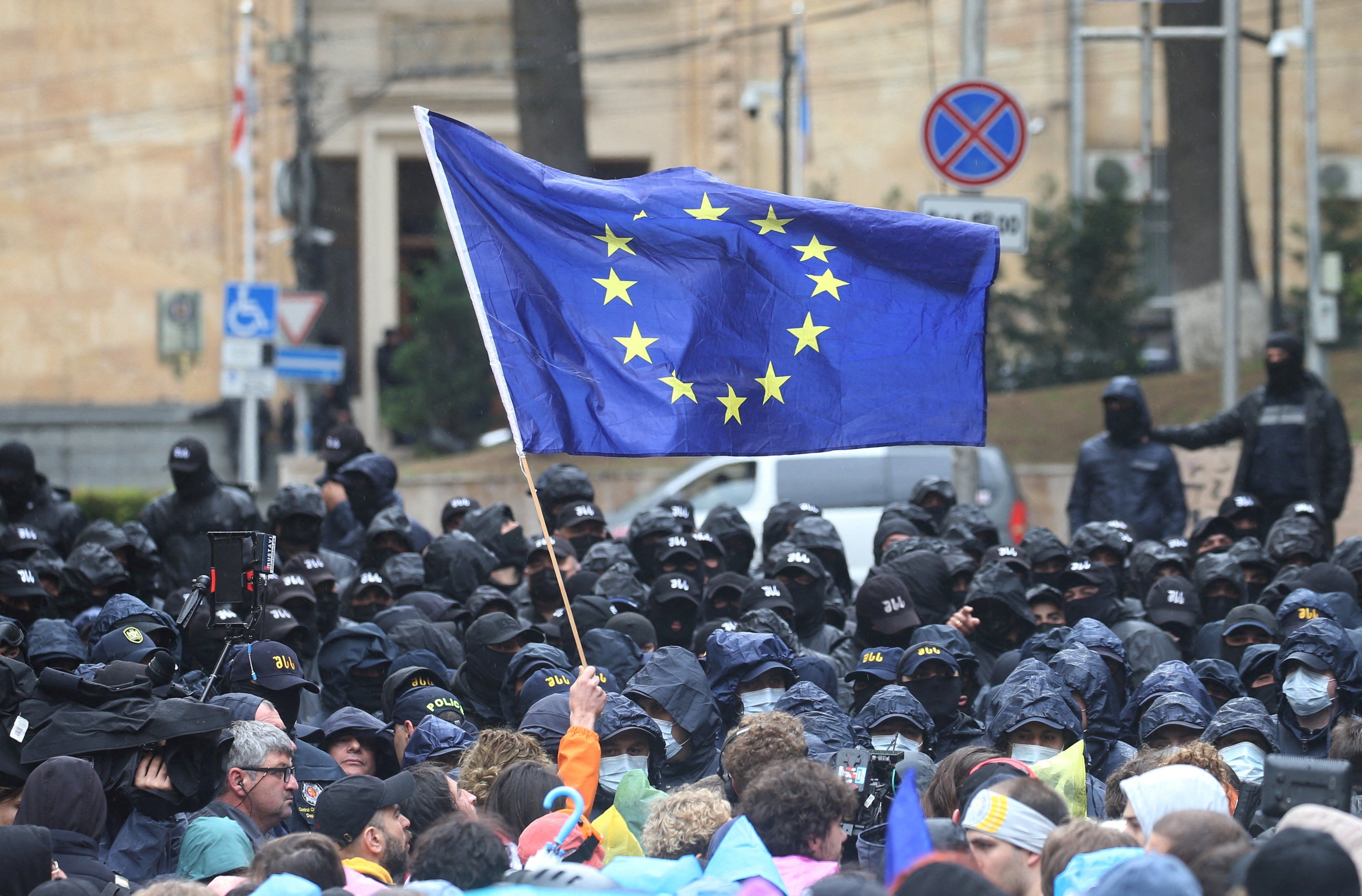Georgia’s accession to the EU is officially frozen thanks to a Kremlin-style foreign agents law that sparked mass protests and violent police crackdowns in recent months. The EU ambassador in Georgia, Pawel Herczynski, said Tuesday that roughly $32.5 million in financial assistance to Tbilisi is also being put on hold.
“It is sad to see EU-Georgia relations at such a low point when they could have been at an all-time high,” Herczynski added.
These moves are a direct product of the ruling Georgian Dream party forcing the foreign agent's law through Parliament despite public opposition, a presidential veto, and warnings from Western countries of serious consequences. Critics of the law say it mimics Russian legislation that has been used to silence critics and crush dissent. Opponents have also expressed concerns the law is a sign the former Soviet republic is tilting back into Moscow’s orbit.
What does this mean for October’s election? Well, Georgia’s October parliamentary elections weren’t expected to be fully fair or free, and this is further proof, according to Eurasia Group analyst Tinatin Japaridze. This “foreign agent” law will likely be used by the incumbent Georgian Dream to silence opposition to maintain power.
This vote will be make or break for the people and the country, as “the ultimate goal of the Georgian Dream is to stay in power no matter what,” Japaridze warns. “And whoever can help them stay in power will be their top strategic partner du jour.”
We’ll be watching to see whether Georgians who oppose these recent moves can take back their country at the ballot box, or if Tbilisi will continue to drift away from the West.
